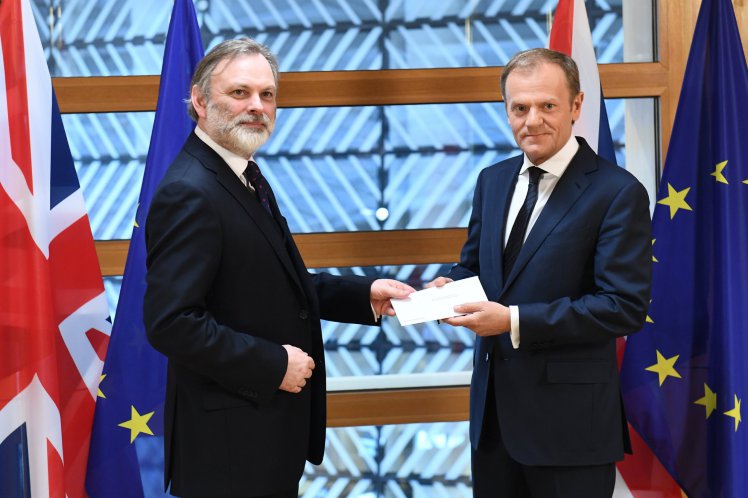Theresa May, prime minister of the United Kingdom, has finally triggered article 50, which would activate UK’s departure from the European Union (EU).
While speaking at the UK parliament after the country’s ambassador formally handed over the activation letter to the EU in Brussels, May said it was a “unique opportunity to shape a brighter future” for the UK.
“The Article 50 process is now underway in accordance with the wishes of the British people, the United Kingdom is leaving the European Union. This is an historic a moment from which there can be no turning back,” she said.
Donald Tusk, European council president, confirmed the receipt of the letter, via a tweet: “After nine months the UK has delivered. #Brexit”.
Advertisement
In a six-page letter to Tusk, May highlighted seven principles of discussion she was expecting from the EU over the next two years.
“We should engage with one another constructively and respectfully, in a spirit of sincere cooperation. We should always put our citizens first,” May said.
“We should work towards securing a comprehensive agreement. We should work together to minimise disruption and give as much certainty as possible.
Advertisement
“In particular, we must pay attention to the UK’s unique relationship with the Republic of Ireland and the importance of the peace process in Northern Ireland.
“We should begin technical talks on detailed policy areas as soon as possible, but we should prioritise the biggest challenges.We should continue to work together to advance and protect our shared European values.”
What is Article 50?
According to BBC, article 50 is a plan for any country that wishes to exit the EU. It was created as part of the Treaty of Lisbon – an agreement signed up to by all EU states which became law in 2009. Before that treaty, there was no formal mechanism for a country to leave the EU.
It’s pretty short – just five paragraphs – which spell out that any EU member state may decide to quit the EU, that it must notify the European Council and negotiate its withdrawal with the EU, that there are two years to reach an agreement – unless everyone agrees to extend it – and that the exiting state cannot take part in EU internal discussions about its departure.
Advertisement
It says any exit deal must be approved by a “qualified majority” (72% of the remaining 27 EU states, representing 65% of the population) but must also get the backing of MEPs.
Add a comment







